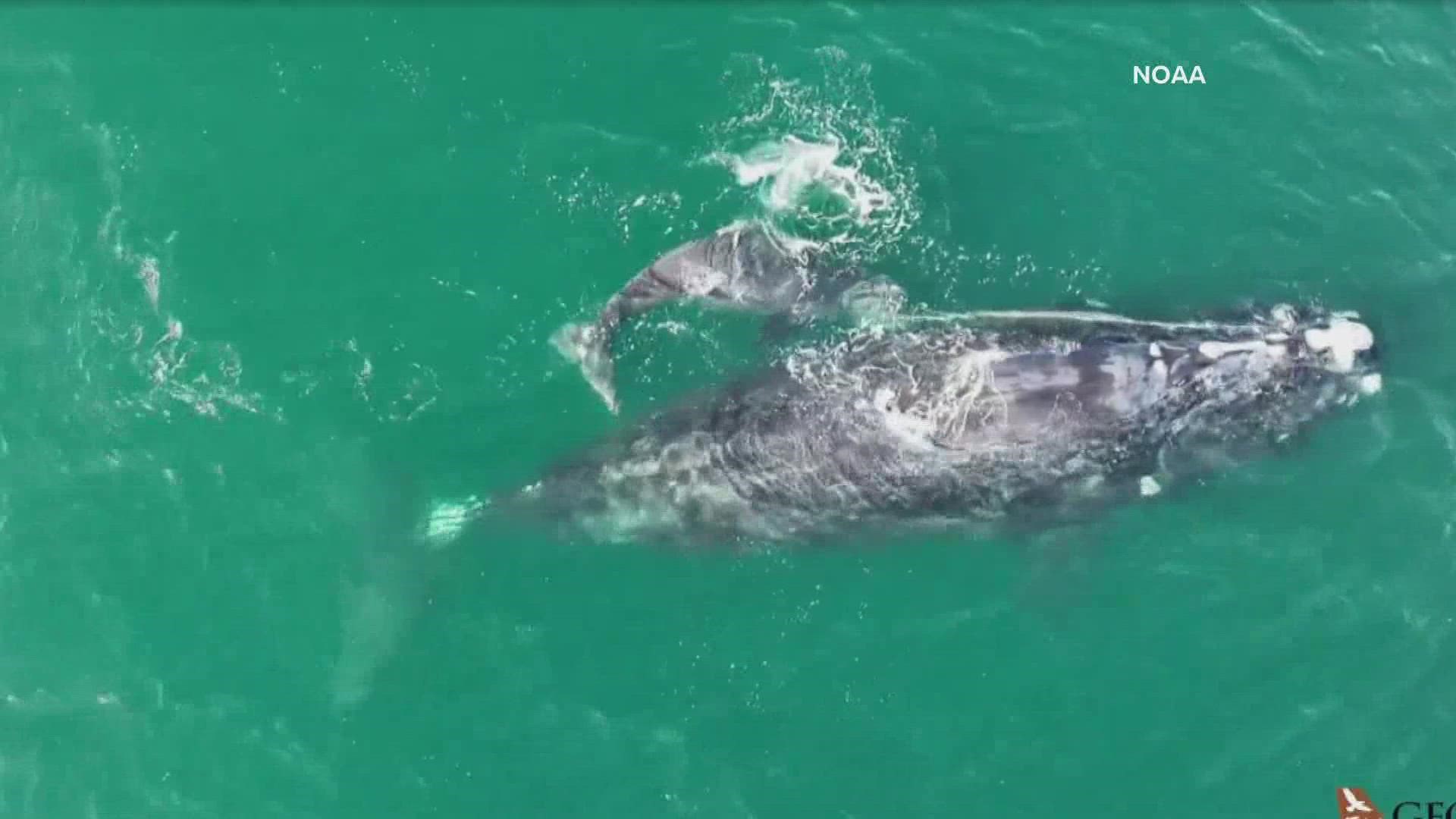PORTLAND, Maine — Government agencies and environmental groups in the U.S. and Canada have been pushing for increasingly tough measures to ensure the survival of the endangered North Atlantic right whale.
But those steps, aimed primarily at fishing and shipping, may be missing the more serious threat to the whales.
Researchers at the Bigelow Laboratory for Ocean Sciences in East Boothbay have said that may be exactly what's happening, and the changing climate may be a factor.
There are believed to be fewer than 400 North Atlantic right whales left on Earth, which is a population drop of 20 percent in the past 10 years, according to data from the New England Aquarium.
And while the latest whale protection rules from the National Oceanic and Atmospheric Association include significant new restrictions on Maine and New England's lobster fishing industry, Bigelow scientists have said the whales face a more fundamental threat in the Gulf of Maine because their food supply is shrinking.
"All the indicators that we've seen suggest they are looking for prey elsewhere," Nick Record, a senior research scientist at Bigelow, said.
Right whales' primary food source in the Gulf of Maine are tiny, energy-rich creates called copepods, Record said. He described the copepods as the size of a grain of rice and has said one right whale will devour hundreds of pounds per day.
However, Record said their research has shown that copepod populations are in decline because the water in the Gulf has been warming and has been doing so at a surprisingly fast rate.
Temperatures at the bottom of the Gulf of Maine are as much as 7 degrees Fahrenheit warmer than the used to be because of increasing influence of the ocean current known as the Gulf Stream, Record said.
That shift has raised average temperatures of the Gulf of Maine, which in turn has cut into the right whales' food supply.
"Warmer waters are bad for some organisms and good for others," Record said. "For copepods [which] right whales eat, it's bad. It really cuts off supply particularly to the eastern Gulf of Maine."
What does this mean for the future?
A report released late last year sheds some light on what may be happening.
Camille Ross is a computer science graduate from Colby College. Ross used her knowledge to analyze years of research data at Bigelow. Using that information and relevant computer models, Ross and her collaborators developed a prediction of what the future may hold for right whales in the Gulf of Maine. It isn't promising.
"We figured out that it appears right whales may stop using the Gulf of Maine habitat as much as they used to by 2050," Ross said.
Record, who served as an adviser for Ross' project, said it all comes back to the decline in their food supply.
There are concerns, however, the shift may already be happening.
Over the past two to three years, there have been more right whale entanglements with fishing gear in the Gulf of Saint Lawrence.
Ross said they noted changes in tiny plankton in that body of water starting in 2010 and observed that, while right whales used to be seen each summer in the Bay of Fundy between New Brunswick and Nova Scotia, none were seen in that area in 2020.
The computer models indicate that, over time, the whales are likely to migrate more to the east or Nova Scotia and away from Maine, Ross said.
"Survey data indicate their food source ... is moving out of the Gulf of Maine," Ross said.
She is now onto a new study about those plankton, using NOAA ocean sampling data to analyze their numbers, in order to learn whether the changes may be happening more rapidly.
Record said these findings about the whales' food supply need to become part of the decision-making strategy on new rules for protecting right whales. Until now, he said, much of the discussion has focused on the human activities of fishing and shipping.
"When everyone is sitting down, talking about where the fishing gear is, where the shipping is happening ... When we're answering the question, 'Where are the right whales?' we are using information where the right whale prey is. I think that would be a huge step forward."
Ross said she has been fascinated by whales since she was a child. She said she and everyone she has been working with all want to help the whales survive. A better understanding of their food supply and the impact of a warming climate may help them do that.

